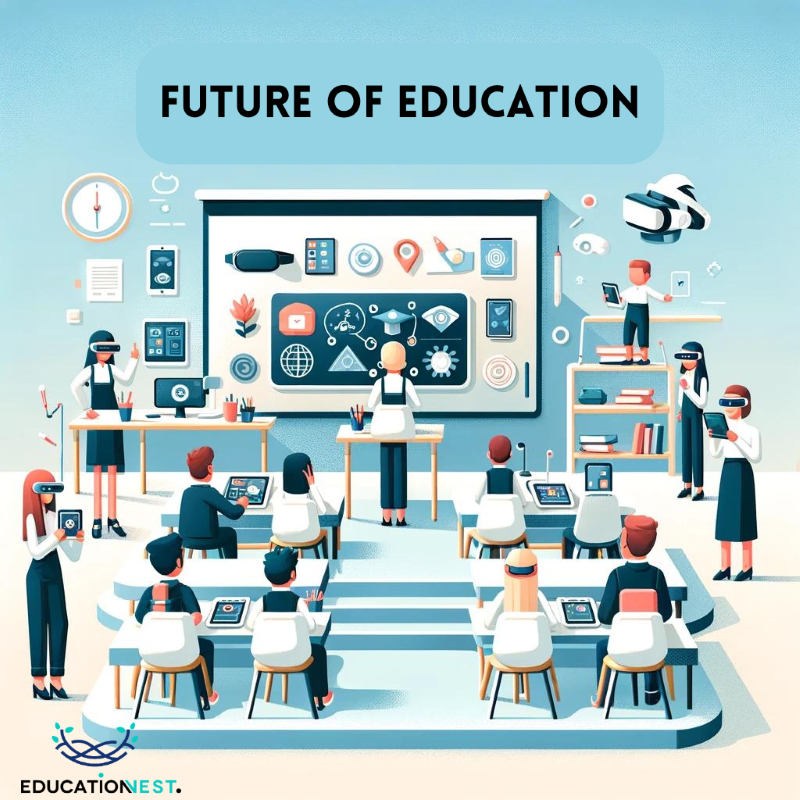
In today’s rapidly evolving world, the landscape of education is transforming at an unprecedented pace. From the rise of online learning platforms to the integration of hybrid education models, the ways in which we engage with educational content are expanding and diversifying. As we delve deeper into this era of digital transformation, educational technology has become a cornerstone of learning, enabling personalized learning experiences that cater to individual needs and preferences. This shift towards a more customized approach is not just redefining traditional classroom settings but also emphasizing the importance of lifelong learning. Whether it’s acquiring new skills, updating existing knowledge, or exploring untapped interests, the focus has decidedly moved towards creating a learning journey that is as unique as each learner. With these trends in mind, our exploration into the latest educational paradigms promises to unveil insights into how technology, personalization, and a commitment to continuous education are shaping the future of learning.
The Surge of Online Learning
In recent years, we’ve witnessed an unparalleled surge in online learning, a trend accelerated by global events that necessitated a shift from traditional classroom settings to digital platforms. This movement isn’t just a temporary response to unforeseen circumstances but a permanent transformation in the educational landscape. Online learning offers unparalleled flexibility and accessibility, making education more inclusive and available to a broader audience.
Platforms like Education Nest are at the forefront of this revolution, providing courses ranging from basic programming to advanced data science, from art history to machine learning. These platforms democratize access to education, allowing anyone with an internet connection to learn from world-renowned institutions like Harvard, MIT, and Stanford without the barrier of tuition fees or geographical limitations.
Moreover, online learning caters to diverse learning styles and speeds. Unlike the one-size-fits-all approach of traditional education, digital platforms offer personalized learning experiences. Through adaptive algorithms, these platforms can tailor the educational content to the learner’s pace, enhancing understanding and retention. This personalization is crucial in fostering a love for learning, encouraging learners to pursue knowledge out of interest rather than obligation.
Also Read:
What is Outcomes Based Education in 2024
The flexibility of online learning also supports lifelong learning. In today’s fast-paced world, where new technologies and methodologies are constantly emerging, the ability to learn and adapt is invaluable. Online courses offer the opportunity to acquire new skills or update existing ones, catering to professionals seeking to stay relevant in their fields and individuals pursuing personal growth.
Despite its many advantages, online learning is not without challenges. Issues such as digital divide and screen fatigue need to be addressed to ensure equitable access and maintain a healthy learning environment. However, the ongoing improvements in technology and pedagogy are gradually overcoming these hurdles, making online learning an increasingly effective and popular choice for education in the 21st century.
Hybrid Education Models

The traditional classroom is undergoing a transformation, blending in-person instruction with online resources to create a hybrid model of education. This approach combines the best of both worlds: the personal interaction and community feeling of traditional learning environments with the convenience and accessibility of online resources. Schools and universities adopting this model report higher engagement rates and improved learning outcomes, signaling a promising direction for the future of education.
The Role of Educational Technology
Educational technology, or EdTech, is at the forefront of this educational revolution. Interactive whiteboards, virtual reality (VR) field trips, and AI-powered tutoring are just a few examples of how technology is making learning more engaging and effective. These tools not only enrich the learning experience but also prepare students for a future where digital literacy is a key skill.
Personalized Learning Pathways
One size does not fit all when it comes to learning. Thanks to advancements in educational technology, personalized learning pathways are becoming more common. Adaptive learning platforms assess individual students’ strengths and weaknesses, tailoring the curriculum to meet their unique needs. This approach ensures that every learner can progress at their own pace, making education more effective and satisfying.
The Importance of Lifelong Learning
The concept of lifelong learning is gaining traction as the rapid pace of technological and societal changes requires continuous skill development. Lifelong learning goes beyond formal education, encompassing personal and professional growth throughout an individual’s life. Embracing this mindset is essential for staying relevant in the ever-changing job market and for personal fulfillment.
Challenges and Opportunities
Despite the promising developments, the digital divide remains a significant challenge. Access to reliable internet and modern devices is still not universal, creating barriers to the widespread adoption of these educational innovations. Furthermore, teachers need training to effectively integrate technology into their teaching. Addressing these challenges is crucial for realizing the full potential of these educational trends.
Future Trends
Looking ahead, the future of education seems poised for even more groundbreaking changes. Gamification, blockchain for secure and verifiable credentials, and immersive learning experiences using augmented reality (AR) are just a few of the trends on the horizon. These advancements promise to make learning even more engaging, personalized, and accessible to learners worldwide.
Conclusion
As we navigate the future of education, it’s clear that technology, personalization, and a commitment to lifelong learning are key drivers of change. By embracing these trends, we can make education more inclusive, adaptive, and effective. The journey ahead is full of opportunities and challenges, but with a collective effort, we can ensure a bright future for learners everywhere.

